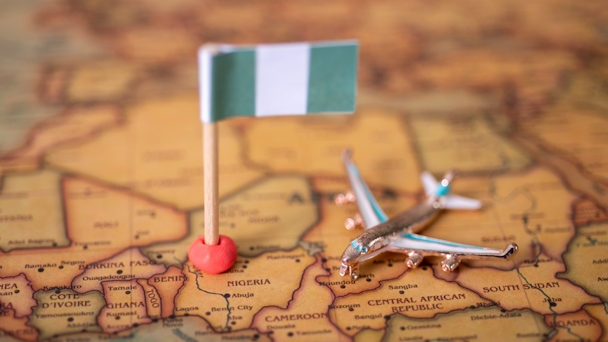You’re not really global if you miss the opportunity in Africa
Titi Odeyinka reflects on why so many top ‘global’ brands tend to miss out on Africa, explaining how her agency Check helped Adidas in Nigeria.

In the US, you can easily watch Ted Lasso on your Apple TV app, Across Sub-Saharan Africa, the journey to AFC Richmond is far more long-winded. Accessing a global hit show like Ted Lasso is not as simple as subscribing and pressing play. A Virtual Private Network (VPN) might help them bypass geographic restrictions, but VPN services add costs and complexity. Alternatively, audiences could enter the murky waters of piracy—logging into dangerous websites that jeopardize their digital security.
This indicates a wider issue.
For many consumers in emerging markets, engaging with global products—from streaming platforms to subscription software—often involves a series of frustrating hurdles. Whether it’s unsupported payment systems, geographic restrictions, or premium pricing models, the promise of a “global” product feels more aspirational than accessible.
Expansion, while desirable, can be complex
To be fair, global brands don’t ignore these markets out of laziness or discrimination. Expanding into diverse and new markets is daunting. For digital products, payment systems are one of the first and most significant hurdles. While consumers in Europe and the US can subscribe to a product or service with a few taps on a credit card, the majority of Africans rely on local banking systems that global brands find difficult to integrate. Digital services, on the other hand, need infrastructure such as localized servers to reduce latency and compliance with often fragmented regulatory frameworks in target regions.
Then there’s the logistical nightmare.
For those who make physical products, seamless fulfillment demands reliable warehousing, cross-border shipping networks, and trust in local delivery services—all of which add layers of cost and complexity. And even after clearing these hurdles, brands face a fundamental question: will the investment pay off?
Brave enough to beat the odds
Despite the challenges, a few trailblazers have found ways to make it work by leveraging digital platforms and smart strategies.
Netflix, for example, adjusted its approach by introducing mobile-only subscription plans at lower prices, making it affordable for millions of African viewers and changing how people access entertainment in the region. Spotify also expanded its reach by launching in over 40 African countries in 2021. It added mobile money payment options and highlighted local artists like Burna Boy and Sauti Sol. Uber took a similar path by adapting to local needs. It introduced cash payments—key in places with low credit card use—and teamed up with local driver networks. Today, Uber operates in 15 African cities with over 36,000 active drivers.
Beyond digital products, digital platforms have also enabled physical trade across Africa. E-commerce giants like Amazon, AliExpress, and ASOS have leveraged digital presence to tap into Africa’s growing consumer base.
AliExpress, for example, has become a popular source of affordable goods for African consumers. It has capitalized on partnerships with local payment platforms, like Flutterwave in Nigeria, to simplify transactions and manage last-mile delivery. ASOS, beloved for its trendy yet affordable apparel, sees a significant share of its African revenue driven by young, urban consumers. Amazon, while not yet fully localized, has seen a steady increase in African customers who order goods despite shipping premiums, aided by logistics partners like DHL.
E-commerce revenue in Africa is projected to reach $46bn by 2025, with platforms like Jumia—dubbed “the Amazon of Africa”—helping to bridge the gap between global brands and local consumers. While challenges such as customs duties and unreliable logistics persist, these digital platforms have laid a foundation for global brands to thrive in Africa.
Digital platforms aren’t just tools, they’re lifelines
For global brands, digital platforms aren’t just tools, they’re lifelines. In regions like Sub-Saharan Africa, where physical infrastructure can be limited, an online presence and the ability to connect digitally can mean the difference between being seen as global and truly being global, being aspirational, and being accessible. Adidas understood this when it set its sights on deepening its presence in Nigeria.
The brand made headlines in 2023 by opening flagship stores in Lagos and Abuja, offering Nigerian consumers a taste of Adidas’ iconic style and innovation. The physical stores were a hit, drawing crowds and showcasing Adidas’ commitment to the market. But as the excitement grew, so did the realization of a major limitation: Nigeria is vast, and for most consumers outside these cities, the stores might as well have been on another continent.
Without a way to bring Adidas to every corner of the country, the brand’s reach—and its potential—remained incomplete. That’s when they turned to us at Check, to create an e-commerce platform tailored just for their Nigerian customers.
Bringing Adidas one step closer to beloved fans
The brief was clear: make Adidas products available to all of Nigeria, regardless of proximity to a store. But we knew that simply building an online storefront wouldn’t be enough. To succeed, the platform needed to reflect local realities while meeting global standards of the Adidas experience and functionality.
We began by addressing one of the biggest pain points for online shoppers in Nigeria: payment and pricing. The platform integrated real-time currency conversion and supported local payment methods like bank transfers and mobile money, ensuring smooth and reliable transactions. Then, we simplified item returns, making sure that if something didn’t fit, it could be easily exchanged.
For Adidas, this wasn’t just an e-commerce project—it was a statement of intent. By investing in a digital presence tailored for Nigeria, Adidas showed it wasn’t content with being a global name in theory. It wanted to be global in practice, accessible to every fan, no matter where they lived.
However, the impact of this platform goes far beyond commerce. Adidas is more than a retailer—it’s a cultural icon, celebrated for its connection to music, sports, and youth movements. Now that we have built this digital space of access, Nigerian fans of the brand would no longer be hard-pressed to find their icon’s latest releases. They would no longer need to comb through overseas sites or rely on friends and relatives to bring back pieces that make them feel a part of something bigger, a part of a world that often feels far away. This partnership wasn’t just about selling sports apparel—it was about building connections and creating value that resonates far beyond transactions.
Rethinking the future of global brands in Africa
For global brands, this is just the beginning. The African continent is brimming with opportunities for partnerships with creative problem-solvers who understand the unique challenges and potential of local markets. These partnerships represent a chance for brands to do more than expand—they can create products, platforms, and experiences that resonate deeply and foster lasting impact.
With Africa’s tech ecosystem growing rapidly and its consumer base more eager than ever to engage, the future belongs to those who are bold enough to collaborate and innovate. The question isn’t whether global brands can succeed in Africa—it’s whether they are ready to partner with the continent’s brightest minds to make it happen.
Titi Odeyinka is a business associate at Check. She believes in the power of storytelling to incite meaningful conversations, action and even change. When she’s not working, she’s probably binge-watching a show on Netflix or taking long walks. Read more opinion on The Drum.
